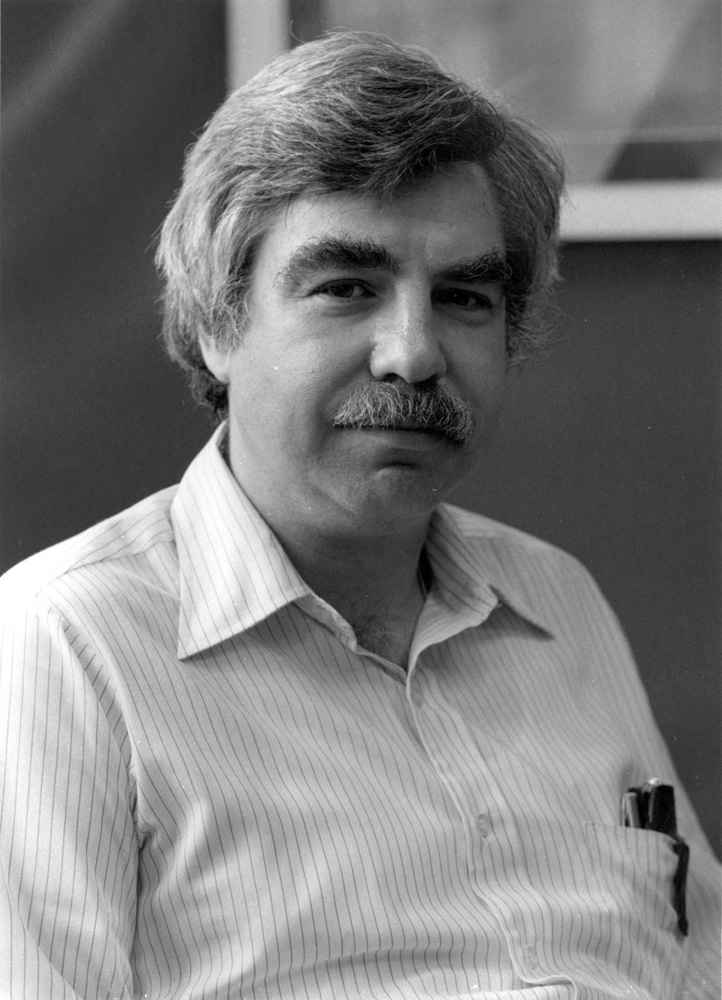Howard Aronson, advocate for study of Slavic and non-Slavic languages, 1936-2024

The following was published in UChicago News on November 1, 2024.
By Sara Patterson
Prof. Emeritus Howard “Howie” Aronson, who built the foundation for the University of Chicago to become a major hub for research in Balkan and Caucasian languages, passed away in Chicago on Oct. 26. He was 88.
In his four-decade career at UChicago, Aronson advocated for the study of Slavic languages and linguistics—and for the incorporation of indigenous and non-Slavic languages of the former Soviet Union into the field. A leading expert in both Balkan and Caucasian languages and linguistics, he particularly focused his scholarship on Bulgarian and Georgian. Aronson also contributed to the study of Russian, English, Yiddish, among others.
“Howie was a linguist’s linguist—he was interested in languages and in linguistic theory and tackled interesting theoretical problems from a solid empirical basis,” said Lenore Grenoble, the John Matthews Manly Distinguished Service Professor in the Department of Linguistics and the College at UChicago. “I often think of Howie, however, for his expertise in Georgian, a Caucasian language with a complex sound system and a complex grammatical system. His interest in Georgian led to the development of a broader base of the study of the non-Slavic languages of the Soviet Union at UChicago.”
One of the first scholars in North America to focus on the languages of Caucasus, Aronson was the founding organizer of the Biennial Conference on Balkan and South Slavic Linguistics, Literature and Folklore, which began in 1978 and continues today. He organized and published the proceedings of nine of Balkan and South Slavic conferences at UChicago for 1981, 1983, 1985, 1987, 1991, 1993 and 1995. In addition to multiple scholarly articles for language and linguistic journals, Aronson wrote three influential books: Bulgarian Inflectional Morphology (1968); Georgian: A Reading Grammar (1982); and Georgian Language and Culture: A Continuing Course (1999), co-written with Dodona Kiziria.
“Howie Aronson’s importance to the fields of both Balkan and Caucasian linguistics was enormous, and at the same time he contributed significantly to Jewish studies,” said Victor A. Friedman, the Andrew W. Mellon Distinguished Service Professor Emeritus in the Department of Linguistics and the College at UChicago. “He published the definitive textbook of Georgian for reading knowledge, which made use of his own original and significant analyses of Georgian grammar.”
Aronson was part of a pioneering event to improve U.S. relations with the Soviet Union. In 1958‒1959, Aronson was in the first group of Americans to study in the Soviet Union under the Inter-University Committee on Travel Grants, which later became the International Research and Exchange Board.
“He reminded me in his retirement years that the study of language must always be grounded in society and commented that it was redundant to have a label such as ‘sociolinguistics,’” said Salikoko Mufwene, the Edward Carson Waller Distinguished Service Professor in the Department of Linguistics and the College at UChicago.
Transformative educator
Born March 5, 1936 in Chicago, Aronson was an avid student, earning his doctorate in Slavic linguistics from Indiana University in 1961. Aronson’s dissertation described the grammatical patterns of the Bulgarian language and compared them to Russian—a topic which formed the basis of his first book.
Friedman said of Aronson’s work: “His first book on Bulgarian inflectional morphophonology was so original and important that during the Cold War, the Soviets pirated the text and translated it into Russian.”
After graduation, he taught at the University of Wisconsin, Madison, before coming to the University of Chicago in 1962 as an assistant professor in the Departments of Slavic Languages and Literatures and Linguistics, the Committee on Jewish Studies and the College. Aronson became an associate professor in 1965 and professor in 1973.
During his 40-year career at UChicago, he served as chair of both the Department of Slavic Languages and Literatures and Department of Linguistics. In 1971, then serving as chair of the Department of Linguistics, Aronson originated the first intra-divisional dual degree doctoral program. Through his efforts, students could earn a joint Ph.D. in the Departments of Slavic Languages and Literatures and Linguistics. (Previously at UChicago, double majors were only possible from two different divisions.)
While Aronson officially retired in 2002, he continued to teach Georgian for several years and to advocate for the study of less commonly taught languages of the former Soviet Union.
One of his colleagues and students, Nada Petkovic, recalls Aronson personal invitation to teach Serbo-Croatian language and Yugoslav literature at the University of Chicago. He was the first person to welcome her at O’Hare Airport when she arrived as a Fulbright Scholar in September 1986.
“Howie was the most supportive, amiable and sincere colleague and friend I have ever had,” said Petkovic, an instructional professor in the Department of Slavic Languages and Literatures at UChicago. “His generosity, wisdom and wit helped me survive my first years in the new country. He was a beloved guest at my home, practically like kin; an adopted uncle to my daughter, who will always cherish the affection and inspiration for life he bestowed upon her. I still quote Howie in my classes and other interactions with students and colleagues. My love for him is everlasting.”
His survivors include three nieces: Sharon Dayan, Karen Amram and Mayan Drori. Funeral services were already held.